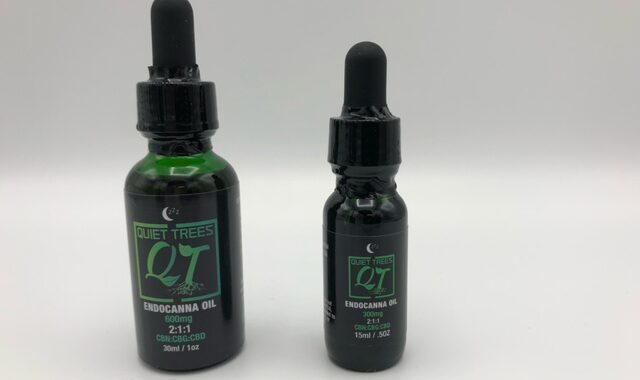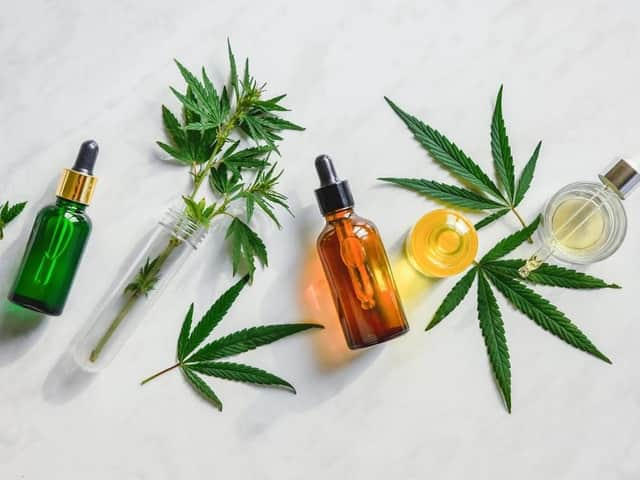Can CBD Oil Improve Your Skin Health?

Can CBD Oil Improve Your Skin Health?
In recent years, cannabidiol (CBD) oil has made a significant entrance into the health and wellness industry, celebrated for its potential therapeutic benefits. From alleviating anxiety to reducing chronic pain, CBD is gaining traction across a wide array of health concerns. But one emerging trend is particularly exciting—its potential role in skincare. So, can CBD oil improve your skin health?
The answer lies in a deeper understanding of how CBD works within the body, how it interacts with the skin, and what scientific research suggests. This blog will explore the benefits of CBD oil for skin health, its potential uses, and some factors you should consider before integrating it into your skincare routine.
What Is CBD?
Before diving into how CBD can support skin health, it’s crucial to define what it is. CBD is a chemical compound derived from the hemp plant, specifically from hemp—a strain of hemp that contains low levels of THC (the psychoactive compound responsible for the “high” associated with hemp). Unlike THC, CBD does not have psychoactive properties, meaning it won’t make you feel intoxicated. Instead, it works with the body’s endocannabinoid system (ECS), which plays a role in regulating various physiological functions, including skin health.
CBD oil is typically extracted from the plant and infused into a carrier oil, like hemp seed or coconut oil, making it easily absorbable by the skin. Many users now add it to their skincare routines in the form of serums, lotions, and face creams.
How Does CBD Work with the Skin?
The endocannabinoid system has receptors (CB1 and CB2) in various parts of the body, including the skin. These receptors can interact with cannabinoids, like CBD, to help maintain balance in the skin. This interaction can influence processes such as inflammation, sebum (oil) production, and even skin cell regeneration.
Skin is the largest organ in the human body and serves as a barrier, protecting us from environmental factors like UV rays, bacteria, and pollutants. The skin’s endocannabinoid system helps regulate its immune response, sensitivity, and repair mechanisms. When this system is imbalanced, it can result in various skin issues, including acne, dryness, and premature aging. If you want to find great tips and information about CBD oil, be sure to check out the full report to learn more.
Potential Benefits of CBD for Skin Health
1. Reduces Inflammation
One of the most well-known benefits of CBD is its anti-inflammatory properties. Many skin conditions, such as acne, psoriasis, eczema, and dermatitis, are driven by inflammation. CBD interacts with receptors in the skin to reduce inflammation, which can help soothe irritated or inflamed areas.
A study published in the Journal of Clinical Investigation found that CBD can suppress excessive oil production in the sebaceous glands and act as an anti-inflammatory, making it beneficial for those suffering from acne. By calming the skin and reducing redness, CBD may help in achieving a clearer complexion.
2. Regulates Sebum Production
Acne is often a result of overactive sebaceous glands, which produce excess sebum (oil). This excess oil can clog pores, leading to breakouts. CBD has been shown to regulate sebum production by balancing the activity of sebocytes—cells responsible for producing sebum.
In the same study mentioned earlier, researchers discovered that CBD can effectively reduce sebocyte activity, suggesting that CBD oil could be a promising treatment for acne, especially for people who have oily skin. By controlling oil production, CBD may also help prevent the formation of blackheads and whiteheads.
3. Moisturizes and Nourishes Dry Skin
CBD oil is rich in essential fatty acids, such as omega-3 and omega-6, which are known for their moisturizing and nourishing properties. These fatty acids can help strengthen the skin’s barrier, keeping moisture in and irritants out. For those suffering from dry skin conditions like eczema or psoriasis, this could be particularly beneficial.
Additionally, CBD’s anti-inflammatory properties may relieve the itching and irritation that often accompany dry skin. By reducing inflammation and providing moisture, CBD oil can help restore the skin’s natural balance and softness.
4. Anti-Aging Properties
CBD oil is packed with antioxidants, which are crucial for fighting the signs of aging. Antioxidants neutralize free radicals—unstable molecules that damage skin cells and contribute to the appearance of fine lines, wrinkles, and dark spots. CBD’s antioxidant properties can help slow the visible aging process by protecting the skin from environmental stressors like pollution and UV radiation.
By incorporating CBD into your skincare routine, you may notice smoother, more youthful-looking skin over time. Some users report improvements in skin elasticity and a reduction in the appearance of fine lines and wrinkles after consistent use of CBD-based products.
5. Soothes Sensitive Skin
For individuals with sensitive skin, CBD may offer a gentler alternative to harsher treatments. CBD is believed to have calming effects on the skin, making it an ideal option for people prone to redness, rosacea, or irritation from external factors. Its ability to modulate inflammation and irritation can help reduce the appearance of skin sensitivity, leaving the skin looking calmer and less reactive.
The Science Behind CBD in Skincare
While the anecdotal evidence for CBD’s benefits in skincare is abundant, scientific research is still in its early stages. Some studies suggest promising results, but more large-scale, human clinical trials are necessary to fully understand the effects of CBD on skin health.
For example, a 2020 review published in Antioxidants emphasized CBD’s potential as an anti-inflammatory and antioxidant agent, supporting its use for acne, psoriasis, and other skin conditions. However, the review also highlighted the need for more comprehensive research on dosage, long-term effects, and different formulations.
Another promising area of study involves CBD’s role in skin healing and scar prevention. Some researchers are investigating whether CBD could accelerate wound healing or reduce the appearance of scars by promoting skin regeneration and reducing inflammation. Early findings are encouraging, but this remains a developing field of research.

How to Use CBD Oil in Your Skincare Routine
If you’re considering adding CBD oil to your skincare regimen, there are a few things to keep in mind:
- Check the Ingredients: Not all CBD skincare products are created equal. Look for full-spectrum CBD or broad-spectrum CBD, as these contain other beneficial compounds from the hemp plant, which may enhance the product’s effectiveness. Be wary of products that don’t clearly state how much CBD is included or those that use synthetic CBD, which may not offer the same benefits.
- Start with a Patch Test: As with any new skincare product, it’s wise to do a patch test before applying CBD oil to your entire face or body. Apply a small amount to a discreet area of skin and wait 24 hours to ensure you don’t experience any adverse reactions.
- Consult a Dermatologist: If you have a pre-existing skin condition, it’s always a good idea to consult a dermatologist before introducing new products into your routine. While CBD is generally considered safe, your dermatologist can provide personalized advice based on your skin type and needs.
Conclusion
While more research is needed to fully understand the scope of CBD’s benefits for skin health, the early evidence suggests that it holds significant potential. From reducing inflammation and regulating sebum production to providing anti-aging benefits, CBD oil appears to be a versatile addition to any skincare routine. However, like any ingredient, individual results will vary, and it’s important to choose high-quality products and use them consistently to see the best results.
If you’re dealing with acne, dryness, or simply looking for a way to support your skin’s overall health, CBD oil could be worth exploring. Just be sure to consult with a dermatologist and start slowly to determine how your skin responds to this increasingly popular skincare ingredient.
